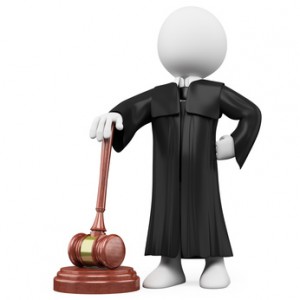Civil Litigation
Courts Crack Down On Summary Judgment Affidavits
SharpThinking No. 182 Perspectives on Developments in the Law from Sharp-Hundley, P.C. May 2020 Courts Crack Down On Summary Judgment Affidavits By John T. Hundley, John@sharp-hundley.com Litigators frequenting Illinois state courts had best beware: the requirements for affidavits supporting and opposing motions for summary judgment increasingly are being interpreted strictly. That’s the message being…
Read MoreTwo E-Mails Sufficient To Invoke Specific Jurisdiction
Litigation Law Roundup SharpThinking No. 179 Perspectives on Developments in the Law from Sharp-Hundley, P.C. April 2020 Two E-Mails Sufficient To Invoke Specific Jurisdiction Two emails sent into Illinois from outside the state were sufficient contacts to force the sender to defend a defamation lawsuit in Illinois, a panel of the Appellate Court’s Third District…
Read MoreSeparate Series Status Must Be Asserted Promptly
Corporate Law Roundup SharpThinking No. 181 Perspectives on Developments in the Law from Sharp-Hundley, P.C. April 2020 Separate Series Status Must Be Asserted Promptly By John T. Hundley, 618-242-0200, john@sharp-hundley.com A series limited liability company (“LLC”) may not rely on a conclusory assertion of its separate existence and may be estopped from asserting…
Read MoreCourt Limits Liberal Citation Remedies
SharpThinking No. 177 Perspectives on Developments in the Law from Sharp-Hundley, P.C. February 2020 Court Limits Liberal Citation Remedies By John T. Hundley, john@sharp-hundley.com An Appellate Court panel in Chicago has limited sharply the use of citations to discover assets to apply remedies provided by the garnishment statute. Contrasting the garnishment statute (735 ILCS…
Read MoreDefault, Acceleration Terms Are Critical Condition Precedents
Mortgage Law Roundup Sharp Thinking No. 176 Perspectives on Developments in the Law from Sharp-Hundley, P.C. January 2020 Default, Acceleration Terms Are Critical Condition Precedents By John T. Hundley, 618-242-0200, john@sharp-hundley.com Creditors and their collection counsel are being advised to read promissory notes and mortgages closely before filing suits thereon as a result of…
Read MoreMunicipality May Be Liable In Quantum Meruit Even Though Contract Is Void In Law, Court Says
Happy Thanksgiving Sharp Thinking No. 174 Perspectives on Developments in the Law from Sharp-Hundley, P.C. November 2019 Municipality May Be Liable In Quantum Meruit Even Though Contract Is Void In Law, Court Says A municipal body can be held liable under the equitable doctrines of quantum meruit and implied in law contracts even…
Read MoreGuaranty Triggered by Resistance to Foreclosure Is Enforceable, Court Says
By John T. Hundley, Jhundley@lotsharp.com, 618-242-0246
A provision making obligors personally liable if they resist foreclosure on an otherwise non-recourse obligation is enforceable, a panel of the Illinois Appellate Court in Chicago has held.
Foreclosure Judgment Not Final And Appealable, High Court Says
A mortgage foreclosure judgment generally is a “final order” but not a “final and appealable” order, the Illinois Supreme Court said late last month.
Read MorePrice Alone No Basis To Void Judicial Sale, Court Holds
Inadequacy of the sales price, standing alone, is not a sufficient reason to deny confirmation of a judicial sale, a panel in the Appellate Court in Chicago held late last month.
Read MoreThree-Year Statute Governs Conversion of Check
Conversion and negligence claims against a bank, arising from a lawyer’s forgery of a client’s
signature to a settlement check, are governed by the three-year statute of limitation of 810 ILCS 5/3-118(g), a panel in the Appellate Court’s Fifth District has held.








